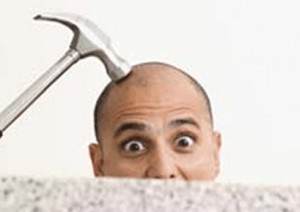A few days ago, rumors wafted around the Internet about Facebook shutting down in mid-March. Panic ensued, illustrating just how addictive this thing has become.
Mood music:
[youtube=http://www.youtube.com/watch?v=Mm7KUQ_uXK0&fs=1&hl=en_US&rel=0&color1=0x3a3a3a&color2=0x999999]
Call me nuts (well, I am a little nuts). But as a guy who’s recovering from a runaway addiction, I know it when I see it.
And since an addict is forever playing a frustrating game of whack-a-mole, I admit the thought of Facebook going away panicked me a little, too.
There are times when I’m embarrassed by my own Facebook behavior. Sometimes I’ll stare at it for hours even if there’s really nothing new happening. It’s easy to use it to be a busybody and nose around in other people’s worlds, though some folks are only too happy to supply the fodder.
Last summer my friend Linda noted that I changed the settings on my Facebook page to allow wall comments. It amused her because it was my birthday. She knows me well. Truth is, I wanted to see the birthday messages. I have an ego to stroke.
I suffer from an inflated ego. It’s a side-effect of where I’ve been. I have this odd fear of being forgotten. And I didn’t want to be forgotten on my birthday. It sounds ridiculous. But there it is.
OCD types have big egos. Achieving big things is one of the ways we try to fill in that hole in our souls. In my profession, getting access to the major power players of information security is a rush. I feel like I am somebody as a result. When I don’t make it to a big security conference, the wheels in my head start spinning. I start to worry that by not being there, I become irrelevant.
With this blog, when I write something that really connects with people, the ego grows a few sizes larger.
I’m somewhat ashamed about this. But I also think it’s a common thing among us. When people say they want their birthday to pass quietly without hearing from people, I don’t buy it.
Everyone wants some attention. That is exactly why Facebook took off.
People suddenly found they had a way to project themselves in ways never before possible. Wannabe writers suddenly got to become “published” writers because they had a platform to do it with. For the most part, this has been a good thing, because a lot of those writers are very good.
But it’s also become an outlet for a never-ending supply of mind junk. And I’m only too happy to consume it.
There’s small comfort in the fact that I’m not alone.
For me it’s complicated further by my profession. In the media world I exist in, proliferating your content is vital to survival. If nobody sees the content, why would anyone want to advertise with us?
So I can’t completely put Facebook down and walk away.
I also use it to push out the contents of this blog. I won’t lie: Some of it is driven by my OCD impulses, some of it is because I badly want to break some stigmas.
Facebook, Twitter and the like are like a rushing river. Throw a toy boat on the water and it’ll be gone from view in milliseconds. 
So we throw duplicate copies of the toy boat into the current every few hours.
I’m no better than the other people who worried about Facebook going down.
I also know people who can stay off Facebook for days and weeks at a time. I envy them.
The best I can do, since I can’t extract myself from Facebook, is be a positive voice and give people something they might be able to use while I’m here.
It beats the shit out of whining.





